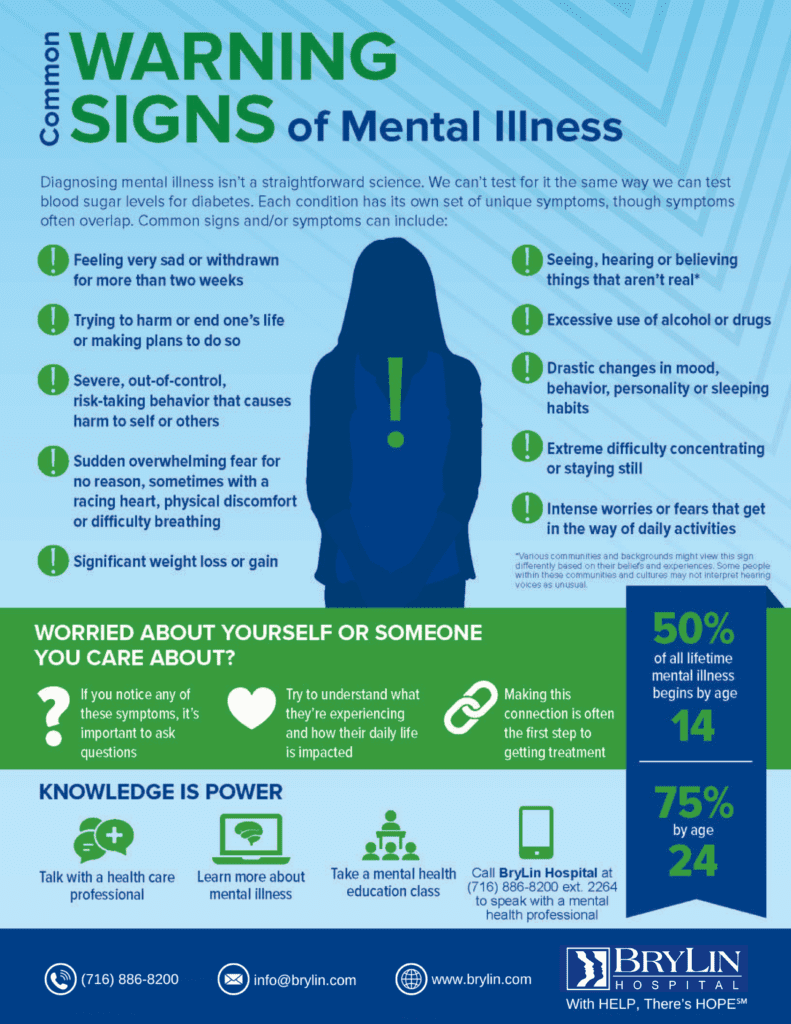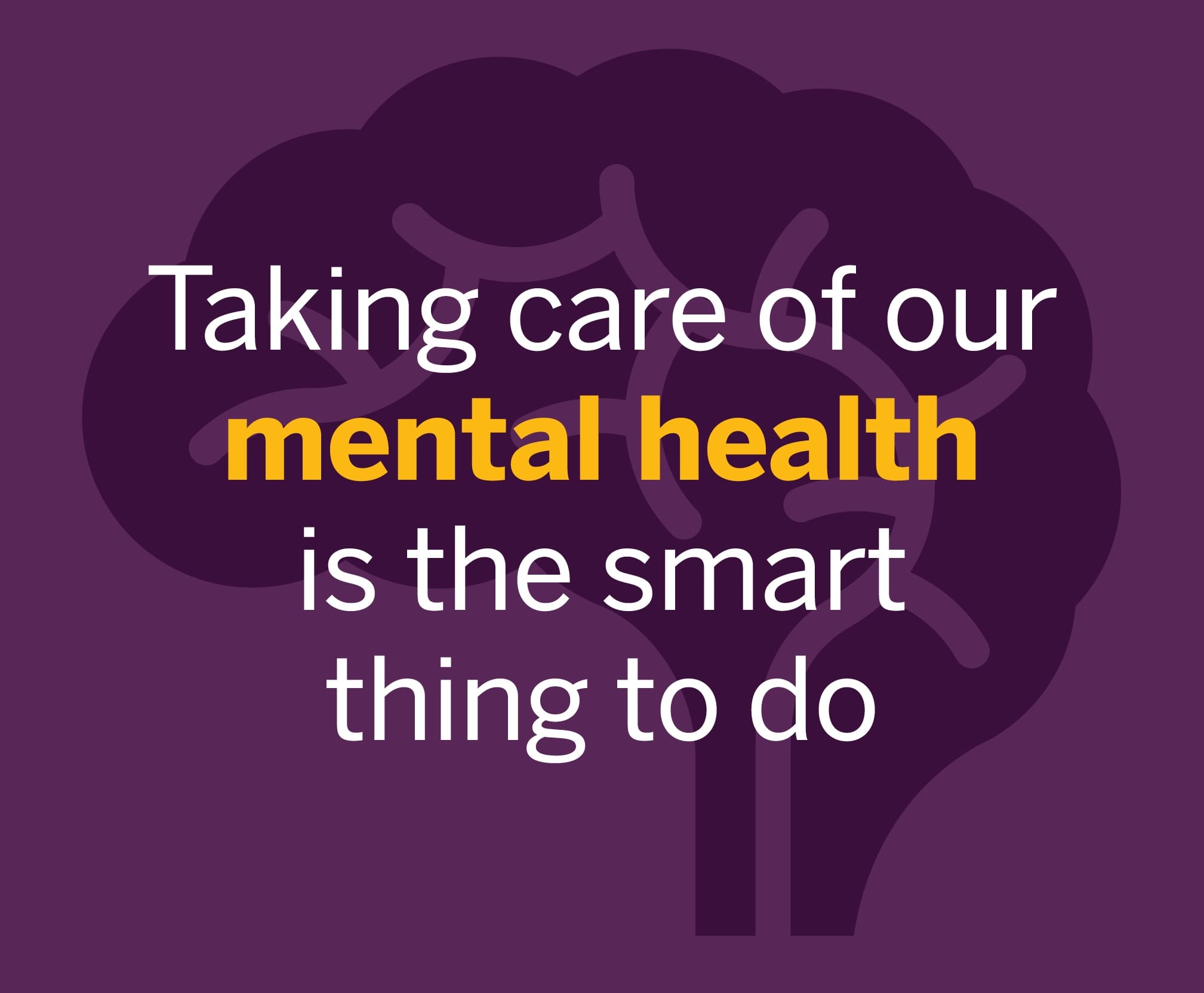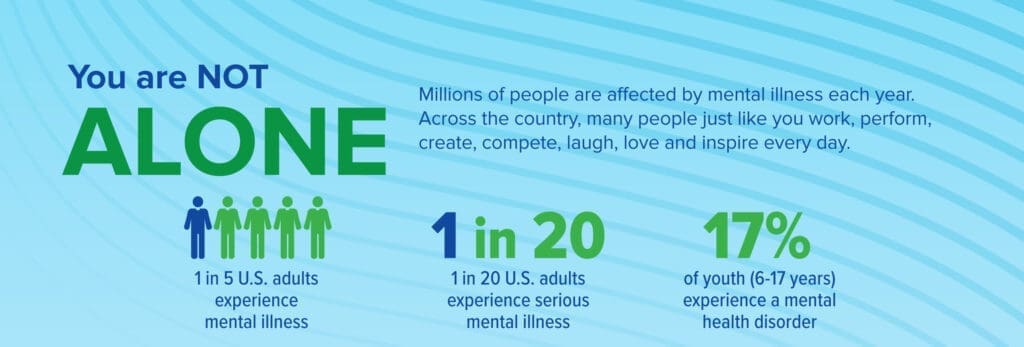Regardless of your age, race, religion, political party or income, the following mental health facts indicate that mental illness affects people from all different walks of life. Millions of Americans are affected by mental illness each year. It can impact your relationships with family and friends, cause problems at work, and affect the way you feel about yourself and the others around you. The following mental health facts are a powerful tool for raising public awareness and eliminating the stigma that surrounds mental illness, hopefully encouraging people to seek help from a mental health professional. If you’re struggling with a mental illness like anxiety, depression, bipolar disorder, thoughts of suicide or psychosis, it’s important to know – You’re Not Alone and Help Is Available!
Millions of Americans are affected by mental illness each year, many of these people are just like you.
- 21% of U.S. adults experienced mental illness in 2020 (52.9 million people). This represents 1 in 5 adults.
- 5.6% of U.S. adults experienced serious mental illness in 2020 (14.2 million people). This represents 1 in 20 adults.
- 16.5% of U.S. youth aged 6-17 experienced a mental health disorder in 2016 (7.7 million people)
- 6.7% of U.S. adults experienced a co-occurring substance use disorder and mental illness in 2020 (17 million people)
Mental Health Facts – What are the Warning Signs?
Diagnosing mental illness isn’t a straightforward science. It’s not always visible, like a broken bone, and we can’t test for it the same way we can test blood sugar levels for diabetes. Each condition has its own set of unique symptoms and these symptoms often overlap. Here are some of the warning signs to look for:

Mental Health Facts – Mental Health Care Matters
Mental health treatment—therapy, medication, self-care—have made recovery a reality for most people experiencing mental illness. With appropriate mental health care and treatment, most people can lead full, rich, and meaningful lives. Unfortunately, less than half of the adults struggling with a mental illness will seek help from a health care professional.
- 46.2% of U.S. adults with mental illness received treatment in 2020
- 64.5% of U.S. adults with serious mental illness received treatment in 2020
- 50.6% of U.S. youth aged 6-17 with a mental health disorder received treatment in 2016
- The average delay between onset of mental illness symptoms and treatment is 11 years
- Annual treatment rates among U.S. adults with any mental illness, by demographic group:
Mental Illness Affects All People – It’s Okay To Talk About Suicide
Suicide is not the answer. If you start thinking about suicide, seek help:
- Call or text a crisis line (call or text 988) or call a trusted friend.
- Make an appointment with a health care professional to talk about what you’re thinking or how you’re feeling.
- Suicidal thoughts are a symptom, just like any other – they can be treated and they can improve over time.
Thoughts of suicide can be frightening but by reaching out for help or checking in with family and friends, we can avoid devastating outcomes.
- Suicide is the 2nd leading cause of death among people aged 10-14 and 25-34 in the U.S.
- Suicide was the 3rd leading cause of death for people ages 15 to 24
- Suicide was the 4th leading cause of death for ages 35 to 44
- Suicide is the 12th leading cause of death overall in the U.S.
- Approximately 90% percent of people who died by suicide had a diagnosable and potentially treatable mental health condition at the time of their death.
- *In 2019, suicide was the 10th leading cause of death (47,511 suicide deaths). In 2020, liver disease and COVID-19 surpassed suicide as leading causes of death

Are You Struggling with Mental Illness/Your Mental Health?
If you’re struggling with depression, anxiety, bipolar disorder, thoughts of suicide or other mental illness…. You’re not alone. Many people have feelings or experiences like yours at some point in their lives. When such experiences become severe, some people need to reach out for help and treatment. Call BryLin to speak with a licensed professional at (716) 886-8200 or Contact Us Today! Help is available, we need to ask for it.
With HELP, There’s HOPE℠





Comments are closed